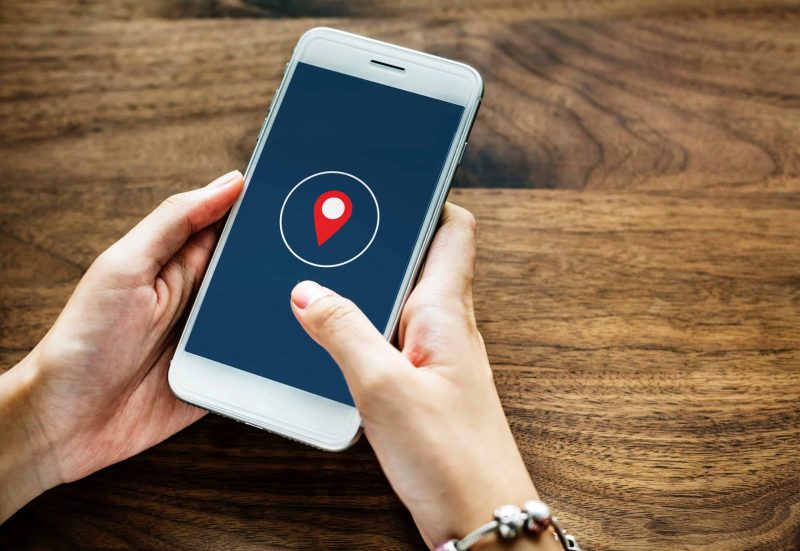Data-driven marketing makes it possible for marketers to craft highly targeted and more personalized campaigns. Such a strategy encourages the target audience to positively respond to a marketing message, as they could relate to it on a more personal level. Marketers can use many kinds of data to deliver targeted campaigns, and they can benefit from Internet Protocol (IP) geolocation data.
IP geolocation refers to the geographical location of a user’s device based on where its unique IP address originated at the time of access. IP geolocation data can be derived from an IP database download like this one, for example. This post tackles the primary role of IP geolocation in marketing, and five marketing benefits companies reap from using IP geolocation data.
What Is an IP Geolocation Database?

An IP geolocation database is a downloadable repository of the geolocation data of active IPv4 and IPv6 address users worldwide. Depending on a provider this data may include an IP address user’s Internet service provider (ISP), connection type, country, region, city, latitude and longitude coordinates, postal code, time zone, GeoName ID, among others.
IP geolocation databases are regularly updated, often either weekly or daily. User information is obtained via legal agreements with major ISPs and registries to ensure complete and accurate IP geolocation data. They can be downloaded in either JavaScript Object Notation (JSON), readable via any text editor, or comma-separated values (CSV) format, readable via any spreadsheet application. These formats make the database compatible and integrable with most existing systems and applications.
How Does an IP Geolocation Database Work?
When you want to know more about a customer, you can get his or her IP address from your network logs. You then need to download the latest version of the IP geolocation database of your choice. Open the database using a spreadsheet application then find the user’s IP address on it. Doing that will give you his or her country, which can help you personalize the content he or she sees each time he or she accesses your website. You can display content in his or her language and prices in his or her local currency. If you have country-specific sales, discounts, or other offers, you can send him or her emails or coupons for these.
You can follow the same steps if you want to investigate a potential case of fraud or cyber attack.
Personalized Marketing: The Primary Role of IP Geolocation

By knowing the location of their target markets, companies can create personalized advertising and marketing campaigns.
Why is this important?
In 2024, as many as 92% of marketers said their target markets expect a personalized experience, and 99% of them found their customer relationships improved due to personalization.
IP geolocation data can enrich the personalization strategies that marketers employ. After all, the marketing message you want to send to your target market in Asia may not be the same as that for the European region.
IP database download can help segment your target market based on location. That way, you can consider the weather, culture, and other location-dependent factors in your marketing campaign.
An IP geolocation database, as stated earlier, can also clue you into a user’s country. If integrated into a signup page, the database can help you identify all your web visitors’ countries. That can help you instantly set your site to display text and prices in their local languages and currencies. That way, they won’t need Google Translate or a forex application just to choose and buy products or services.
Aside from a personalized and targeted marketing approach, IP geolocation also helps companies in other marketing areas.
Geolocation Can Be a Mobile Marketing Driver

On average, a person spends three hours on his/her mobile phone every day. Such a device has an IP address that can help companies become more aggressive with their mobile marketing efforts. Here are a few marketing tactics that an IP database download can enhance:
- Send coupons to users whose IP geolocation data indicates they are near a company’s store location
- Alert users of an ongoing promotion when their devices’ geolocation is within a competitor’s area
These methods allow companies to get noticed by customers who are about to make a purchase.
Geolocation Data Can Refine Social Media Marketing

Social media posts can also convert target audiences into customers while driving traffic to your website. Whatever your goal is, social media is a very lucrative marketing platform, with more than 3.6 billion active users.
However, creating a social media campaign and targeting a global audience may not be as effective as targeting a specific country, city, or town. As such, it’s essential to know where your target market is located by tapping into users’ IP geolocation data. Which country or city do most of your website traffic come from? These would be the most worthwhile locations to target in your campaign.
IP geolocation has also made instant check-ins possible, which can further amplify the effect of social media on your business. Users can immediately post that they are in a company’s store and share their experience. Businesses can benefit from the publicity while gaining insights from customer reviews.
Geo-Exclusion Helps Marketing Teams Comply with Location-Based Regulations

The maximum fine for violating the General Data Protection Regulation (GDPR) is set at €20 million or 4% of an organization’s annual global turnover, whichever is higher. Among the companies that paid the most significant fines so far are Google (€50 million), H&M (€35 million), and Telecom Italia (€27.8 million).
Such penalties serve as a warning to businesses to be mindful of how they manage customer data. Furthermore, they can use IP geolocation data gleaned from an IP database download to exclude regions with strict data privacy laws or use a different approach with those in their marketing campaigns.
IP Geolocation Makes PPC Advertising More Cost-Effective
Geo-exclusion can also help marketers get the most out of their pay-per-click (PPC) advertising budgets. They can choose to exclude non-serviceable locations so budgets go to people that can purchase their products and services.
Keep in mind that in PPC advertising, you only pay when users click your ads. So if someone located in a non-serviceable country clicks your ad, that is already money wasted. The most sensible thing to do is to exclude these locations by using IP geolocation data.
IP Geolocation Helps Improve Local SEO Results

Local SEO is a means to increase a company’s search visibility in the communities it serves face-to-face or physically through brick-and-mortar establishments (e.g., stores, offices, or warehouses).
Apart from website localization, marketers can use IP geolocation data to target country-specific search engine optimization (SEO) keywords, which is bound to improve their marketing returns on investment (ROIs). Localizing content can increase your SEO ranking in various countries. Most importantly, though, localizing your SEO efforts lets potential customers see your company’s offerings in their respective countries.
IP Geolocation Keeps Users Away from Fraud

E-commerce companies can use an IP geolocation database to verify customers’ identities during transactions. By integrating an IP geolocation check into the purchasing process (i.e., ideally, before a transaction is approved), you can ensure that the customer is who he or she claims to be.
So if all your customers are from the U.S. and someone suddenly makes a huge purchase from China, you can make a quick phone call to the supposed client (i.e., using his or her saved contact details in your customer database) to confirm his or her identity before letting the transaction push through. The extra check will help you protect your client from getting defrauded.
IP geolocation data when correlated with consumer behavior, purchase history, and other information, can help marketers curate personalized content. Such data can also make specific marketing tactics more refined and effective.


